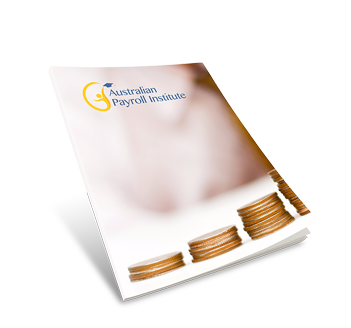Unlike other functions such as accounting, HR and bookkeeping, there have never been any formal qualifications for payroll.
I expect you would be unlikely to visit a health professional that didn’t have the appropriate qualifications, nor would you expect a tradesperson to do a good job if they weren’t qualified. Qualifications are an essential part of being a professional, not matter what profession you are in.
In mid-2011 I decided that in order for payroll to become a bona fide profession, there needed to be payroll qualifications recognised by the Australian Qualifications Framework.
In most other professions, you can go to your HR manager having completed a Certificate IV or Diploma course, and suggest that you are worthy of a pay increase or career pathway based on your new professional competencies. This has never existed for payroll. Payroll staff who have completed a bookkeeping, accounting or HR qualification are still denied promotion as those qualifications are not seen as adding value to the payroll function. It was time for nationally recognised payroll qualifications in Australia.
I’ve been fired up about the lack of professional qualifications for payroll for some years now. So on a mission, I went to find out how to develop a payroll qualification.
I met with lots of different people who I thought could help me do this. Without exception, they all told me that it would be impossible to get a payroll qualification approved and recognised by the Australian Qualifications Framework. I was told that payroll is too specific, and that qualifications needed to be much broader. There was no way it could happen. Just can’t be done they said.
Thanks to many years working in sales, I’m pretty good at dealing with objections! Aside from my thick skin, I just didn’t believe that it was right that a highly technical function like payroll, with all its responsibilities and complexities, had no nationally recognised qualification.
Finally I spoke with a lady called Angela who gave me hope. I distinctly remember the conversation I had with her. I was lamenting the feedback that I was getting, that I’d never be able to get payroll qualifications approved because it was too specific and industry would never support it.
Then Angela said to me “Tracy, I’ve just got a Certificate III in Orchid Growing approved. I think that’s slightly more specific than payroll”.
So armed with that knowledge I decided to press on, regardless of the feedback I had got. Some 18 months later we enrolled our first students in the Certificate IV in Payroll Administration and the Diploma of Payroll Management.
It was a long, frustrating process and required lots of meetings, industry support and stubborn determination (as well as a few glasses of wine from time to time to keep me sane) but we finally got it through.
I realised just how much these qualifications were needed when I went to the AHRI (Australian Human Resources Institute) convention in September 2012. Every single HR Manager I met, whether they were from government or private enterprise was really excited by the development of a Certificate IV and Diploma in payroll. They said things like “finally, I can give my payroll people a career plan”. We knew then it had all been worth it.
Qualifications will make it easier for employers to see who takes their profession seriously and is genuine about a career in payroll. In terms of career progression, you need to show that you are dedicated to education and learning and therefore dedicated to your profession. Once you do this, and with the payroll profession continuing to illustrate the value it can provide to employers, opportunities will open up.
Who could have told a Labour Relations worker in 1900 that in a century’s time they could be an organisational transformation specialist? There are roles which we haven’t even considered yet, which will be a stepping stone for qualified payroll professionals in the future.
One of the key things that organisations are looking for from their payroll professionals is a level of comfort. Comfort that you know your subject matter. Comfort that you have access to all the information which allows you to make the right decisions. Comfort that the payroll operation is compliant and not likely to incur fines or bad press.
Only by getting qualified can you truly provide this comfort. The majority of employers I have spoken with have told me that they are more than happy to pay for their payroll staff to become qualified, as the comfort they are looking for is worth the financial investment in education.
Becoming a qualified payroll professional isn’t just about showing your current and future employers that you take your payroll career seriously. It’s a lot to do with quality control. Not just quality control for payroll compliance, but quality control associated with employing the best payroll professionals.
So now that you have the ability to gain a qualification to the same level as your HR colleagues, go get qualified!

